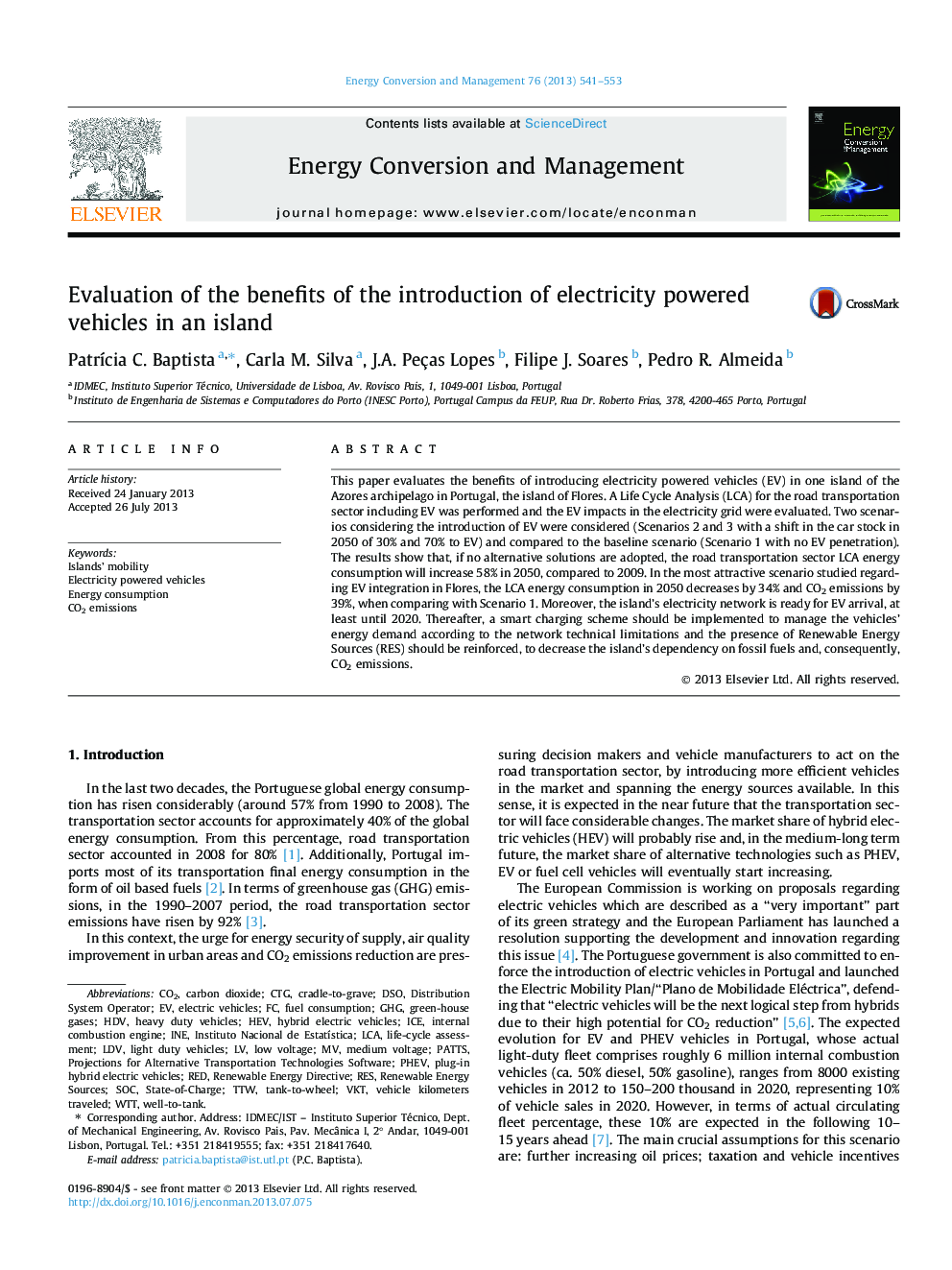| کد مقاله | کد نشریه | سال انتشار | مقاله انگلیسی | نسخه تمام متن |
|---|---|---|---|---|
| 760811 | 1462886 | 2013 | 13 صفحه PDF | دانلود رایگان |

• Quantify impacts of new technologies in LCA energy and CO2 emissions and on electricity grid.
• Methodology applied to small island with high potential of renewable energy integration.
• Flores’ electricity distribution infrastructure can handle EV, revealing gains in fleet’s LCA.
This paper evaluates the benefits of introducing electricity powered vehicles (EV) in one island of the Azores archipelago in Portugal, the island of Flores. A Life Cycle Analysis (LCA) for the road transportation sector including EV was performed and the EV impacts in the electricity grid were evaluated. Two scenarios considering the introduction of EV were considered (Scenarios 2 and 3 with a shift in the car stock in 2050 of 30% and 70% to EV) and compared to the baseline scenario (Scenario 1 with no EV penetration). The results show that, if no alternative solutions are adopted, the road transportation sector LCA energy consumption will increase 58% in 2050, compared to 2009. In the most attractive scenario studied regarding EV integration in Flores, the LCA energy consumption in 2050 decreases by 34% and CO2 emissions by 39%, when comparing with Scenario 1. Moreover, the island’s electricity network is ready for EV arrival, at least until 2020. Thereafter, a smart charging scheme should be implemented to manage the vehicles’ energy demand according to the network technical limitations and the presence of Renewable Energy Sources (RES) should be reinforced, to decrease the island’s dependency on fossil fuels and, consequently, CO2 emissions.
Journal: Energy Conversion and Management - Volume 76, December 2013, Pages 541–553